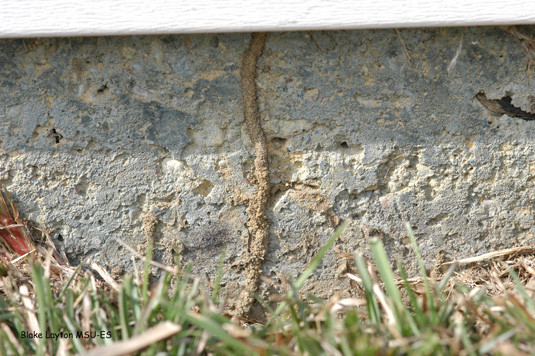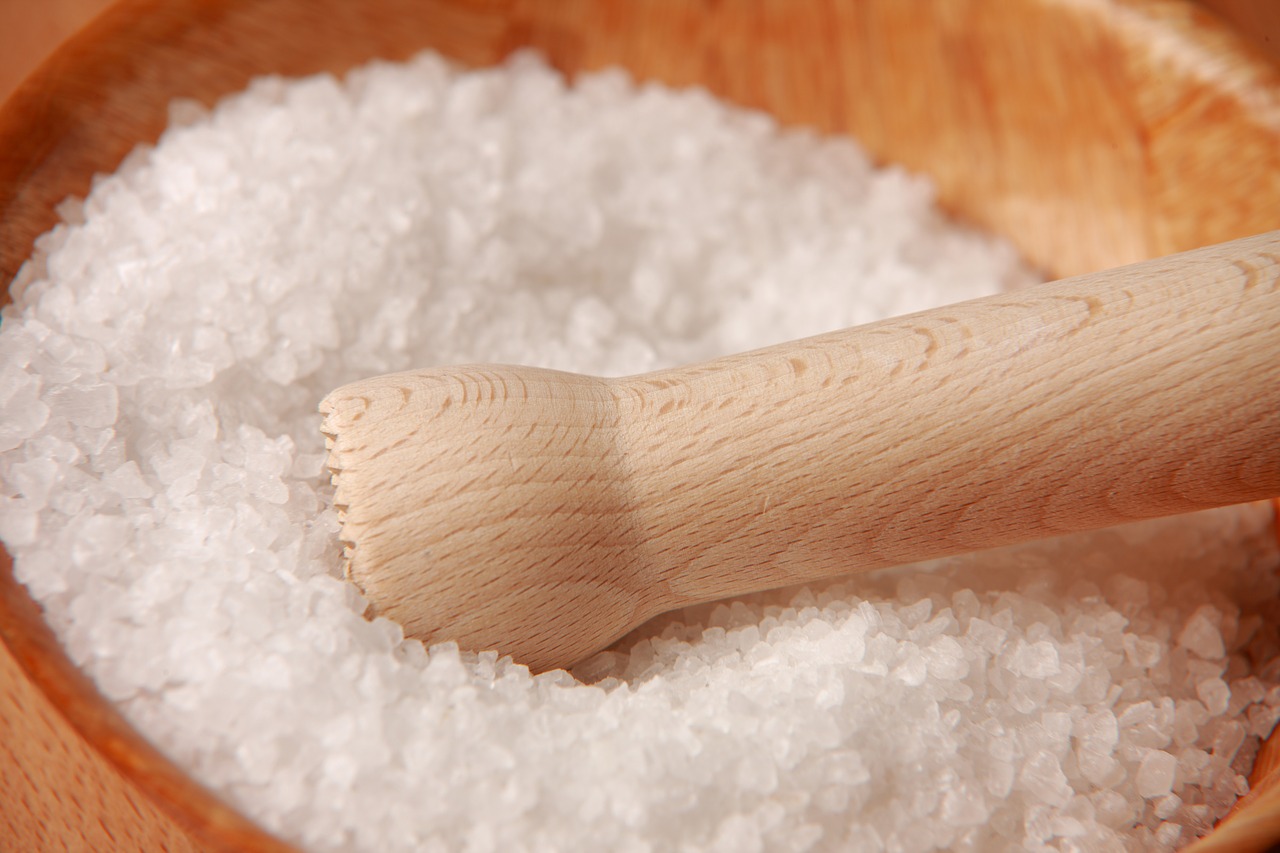Some people want to try natural solutions for their termite problems. They may simply prefer a natural remedy to the problem, or perhaps they want to save money — who knows? Many websites have taken advantage of this need for natural solutions and have suggested many that, sadly, do not usually work. One of the many natural remedies for termites is salt. But does salt kill termites?
Salt does kill termites but how do you use it?
Yes, salt does kill termites. The home pests die when they ingest salt in significant quantities. The sodium and chloride in the salt can dehydrate the termites enough to kill them. To use salt to get rid of termites, mix it with water, put the solution in a syringe, and use the syringe on the colony.
1. Make a salt and water solution
You don’t just get rid of termites with salt alone, even though that can still work because even just getting into contact with salt can hurt them. You will need a driver that can send the salt deep into the termite colony — and that’s where water comes in.
In a bowl or glass, mix warm water and salt in equal portions. Stir until the salt is completely dissolved in the solution. Since the solution has an equal amount of salt and water in it, it should be very salty.
2. Put the solution in a syringe
Get a syringe and fill it up with the salt and water solution. A syringe will be the ideal instrument for the solution because it will allow you to inject a targeted amount in a specific area effectively. Termites burrow deep within their colonies. If you want to have a chance to get rid of them, you will need the precision of a syringe.
For the exposed parts of the colony. You can use a spray bottle.
3. Empty the syringe into the termite colony
Fill the termite colony with a generous amount of salt and water solution. Remember that the solution needs to be touched and/or ingested by the termites for it to be effective. If you want to reach the deepest parts of the colony, make sure you fill the colony with sufficient amounts of the solution.
Also, take note that finding the termite colony can be complicated. Different termite species have different habits. As a rule of thumb, just look for the common signs of termite activity and see where they lead you. Look for mud tubes, “saw dusts” that are actually termite pellets, and small insects you can mistake for ants.

The pros and cons of using salt to kill termites
Pros
- Salt does work. Salt does kill termites, thanks to its dehydrating properties that are fatal to the pests. That’s already an automatic advantage, considering that there are so many fake articles out there about termite home remedies. Some even say that baking soda can kill termites, but it actually can’t.
- Salt is a very accessible material. You can make a salt and water solution immediately after reading this article. You probably have salt in your kitchen right now. This makes salt a very accessible home remedy for termites — and an effective one at that.
- It is a safe natural remedy. The problem with commercial termite solutions is that they can be health risks. Exposure to termiticides can have negative side effects, not just for you, but also for your pets and plants. Salt-water is harmless compared to these solutions.
Cons
- Salt requires direct contact to work. Salt kills termites through direct contact and dehydration. This can be problematic because of how inaccessible termites can be as they burrow deep within their colony. It doesn’t matter if your solution works if your solution can’t even reach them.
- Salt can leave stains behind. You will be injecting salt water into your home’s nooks and crannies. Depending on the location of the termite colony, this can be bad news. The solution can leave salt crystals and stains behind, giving you more problems to think about.
- You are better off calling pest control professionals. Termites are naturally resilient pests that require proven methods. Unfortunately, most of these methods are only accessible to licensed pest control professionals. Termite fumigation, for example, is one of the most effective methods out there, and only licensed professionals can perform them.

Termite control alternatives
1. Try soapy water or vinegar
Soapy water and vinegar solution are great alternatives to salt water. They work practically the same — mix the solution in a bowl or glass and then put the solution in a syringe. To make a soapy water solution, drop three teaspoons of liquid dish soap in four cups of water. To make a vinegar solution, simply mix vinegar and water in a 1:1 ratio.
You can spice up your solutions by adding a few drops of lemon juice, as lemon also has natural pesticidal properties.
2. Sprinkle boric acid or diatomaceous earth instead of salt to kill termites
Boric acid and diatomaceous earth both have the dehydrating properties of salt. You can use them as alternatives. Simply sprinkle them on areas with apparent termite activity. Reapply them when necessary.
Take note that boric acid can be toxic to you and your family. Use with caution if you have children or pets in your household. Diatomaceous earth is relatively more friendly, especially because it has food-grade versions.
3. Coordinate with pest control professionals
Salt can kill termites, as well as the other alternatives listed here. But it’s still better to just call pest control professionals. They can diagnose your problem properly and recommend a solution that will best fit for your case.
For example, if the termite infestation is concentrated in a specific part of your home, spot treatment may be enough. But if the termite infestation is severe, termite fumigation may be required.
The point is, professionals know more about this stuff compared to you.
So, does salt kill termites?
Yes, salt can kill termites. It has many advantages — it is accessible, effective, and relatively safe compared to traditional termite control methods. But it also has disadvantages — it requires direct contact for it to work, and that may be hard to do because of how inaccessible termites are when they are deep within their colonies.
Termites are complicated pests. Sure, you can try DIY solutions like salt. But their effectiveness is limited, especially when compared to the solutions at the disposal of trained pest control professionals.

